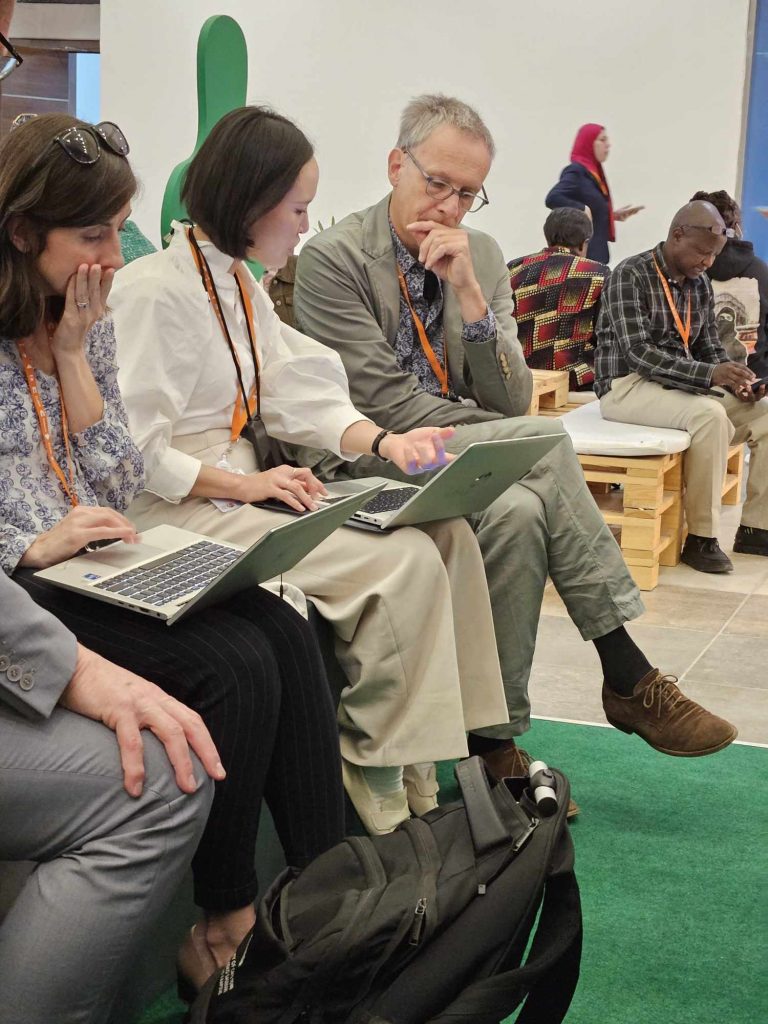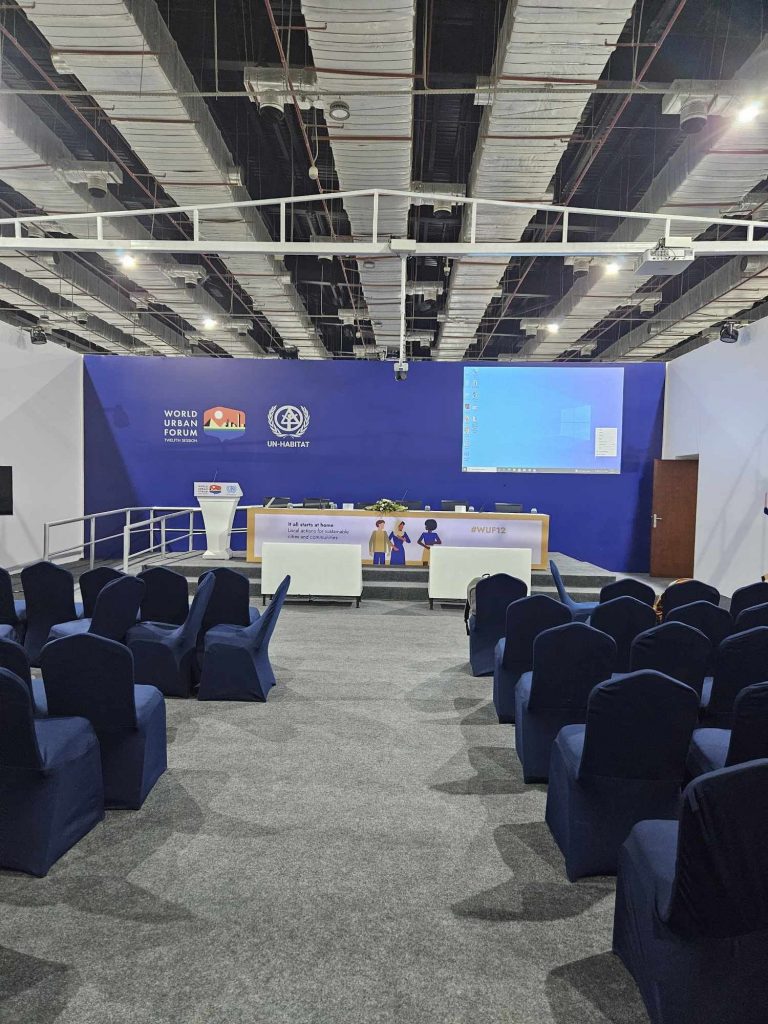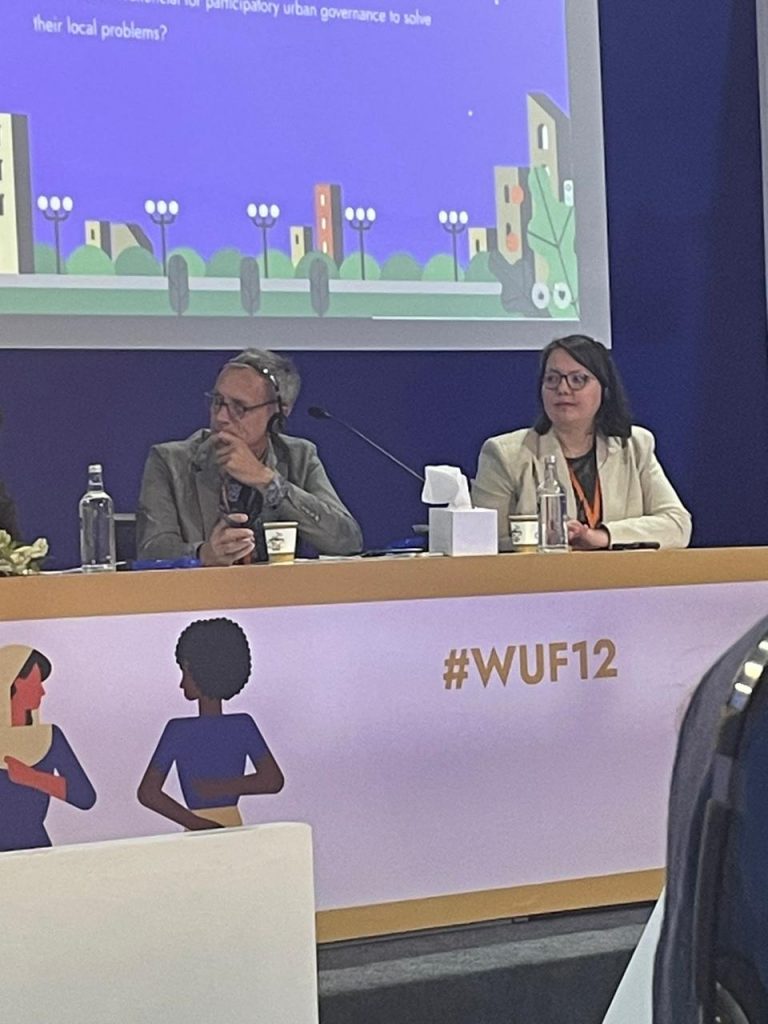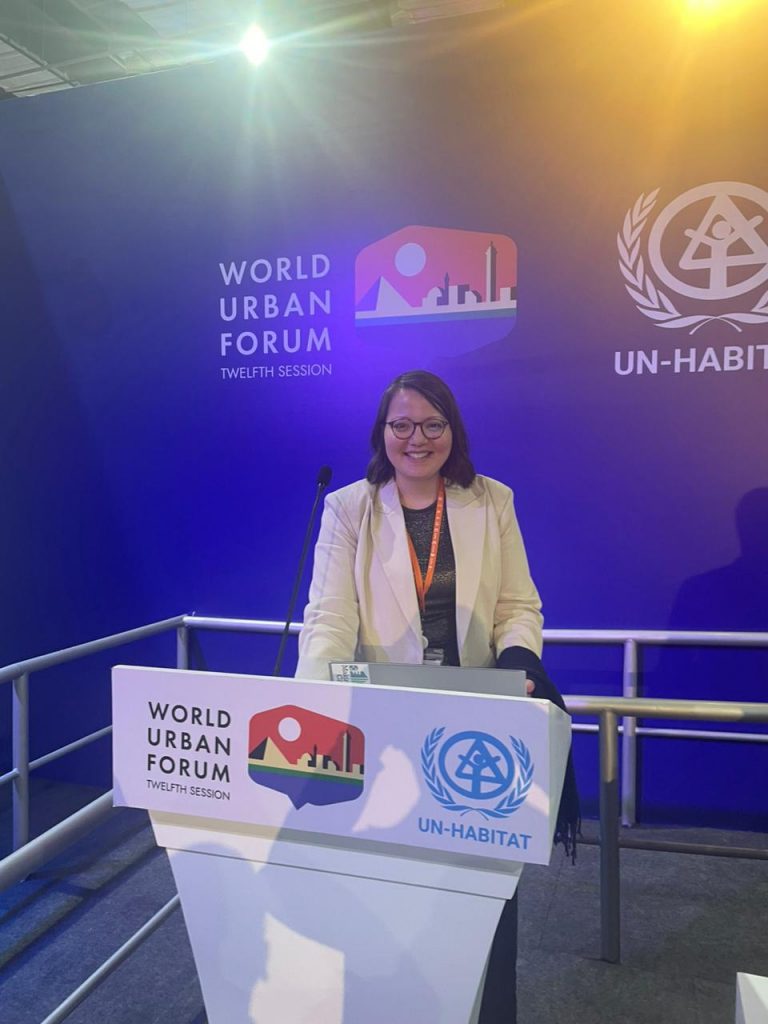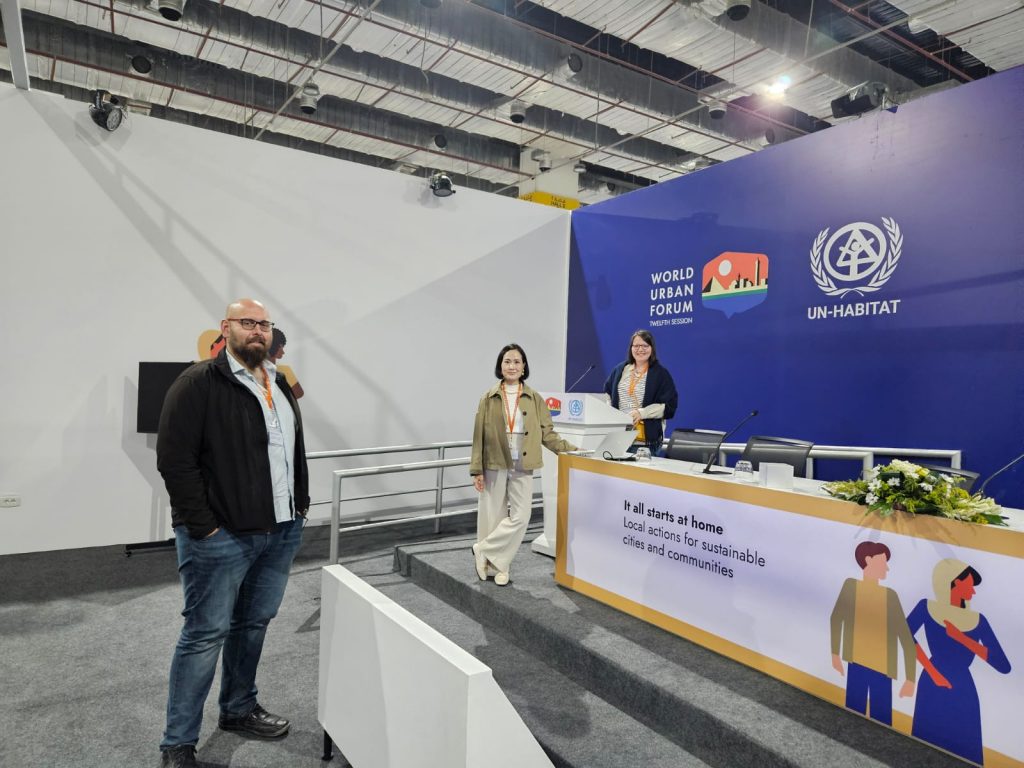Representatives from the Institute of Management at STU, Dr. Sila Ceren Varis Husar and Associate Professor Milan Husar, recently had the opportunity to participate in the prestigious World Urban Forum (WUF), organized by UN-Habitat. This global event, held in Egypt, brought together spatial planners, researchers, policymakers, and experts from around the world to jointly discuss current challenges and solutions in urban development. More than 20,000 participants from over 180 countries attended the forum.
During the event, the university’s delegation led a dynamic networking session titled “Citizen-Centric AI in Smart Cities: Participatory Urban Governance and Local Actions.” This session focused on integrating artificial intelligence (AI) into urban governance, with a special emphasis on involving citizens in creating smarter, more inclusive cities. Participants explored practical applications of AI to enhance urban services and support local actions aimed at improving quality of life, sustainability, and resilience in urban areas.
The meeting highlighted the essential role of participatory governance in the digital age, demonstrating how AI can serve as a tool to empower communities and amplify citizens’ voices in decision-making processes. Dr. Jens Libbe from the German Institute for Urban Affairs, Prof. Dina K. Shehayeb from the prestigious Nile University, and SaeBom Song from the Karlsruhe Institute of Technology joined the discussion panel, sharing their insights and experiences from Germany, Egypt, and South Korea.
The Institute of Management at STU and its research center, Spectra CE EU, are committed to advancing research and education in smart city technologies and participatory urban governance. The knowledge gained from WUF will be valuable in fulfilling our mission. Our participation in this event reflects our commitment to staying at the forefront of global urban development trends and strengthening our contributions to sustainable urban futures. This trip was supported by the Erasmus ICM program and the SASPRO2 program.
For more information about the World Urban Forum and this session, please visit the WUF page by UN-Habitat.

